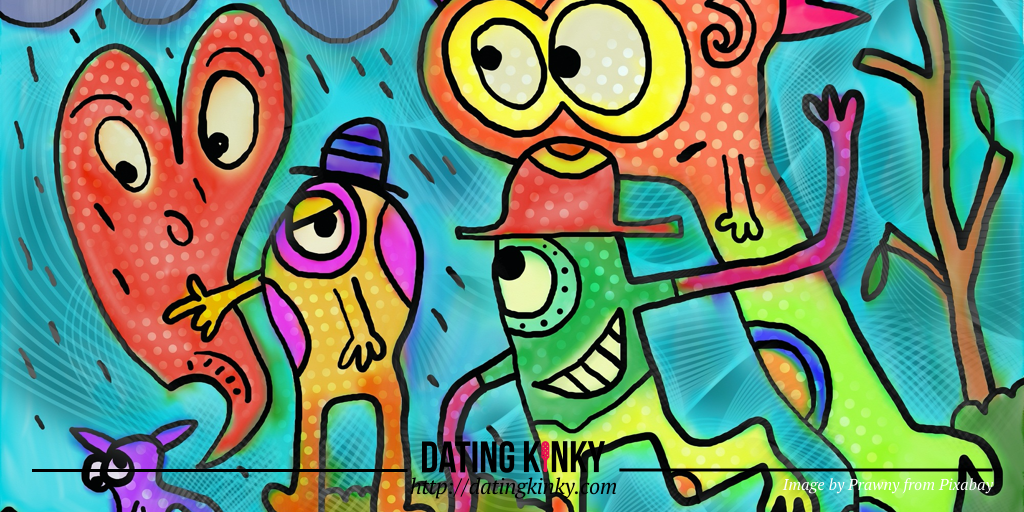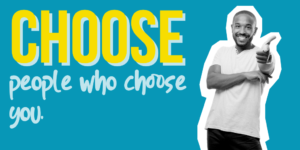In the past couple of days, I’ve had several people make similar remarks:
The women I have most often met in the lifestyle so far have psych disorders and diagnoses.
Dont you think those people need therapy? (sic – referring to people who enjoy BDSM without including sex in it)
All I’m looking for is a sane, single, dominant woman to do perverted things to me.
I find it fascinating that even those in the lifestyle themselves are making comments like this.
Because the crazy they are most often speaking of is behavioral, rather than clinical.
According to studies, BDSM practitioners are actually LESS likely to suffer from many mental disorders than the general populace.
BDSM Correlated With Better Mental Health, Says Study
Andreas Wismeijer, a psychologist at Nyenrode Business University in the Netherlands and the lead author on the study, told LiveScience that people involved in the BDSM community may have scored better on these surveys because they tend to be more aware of and communicative about their sexual desires, or because they have done some “hard psychological work” to accept and live with sexual needs that are beyond the scope of what is often considered socially acceptable to discuss in the mainstream.
So, good news! We’re not crazy—clinically. Or, at least, no more crazy than the rest of the world, and possibly a lot less.
That said, there is another angle to look at.
I’ve often noted that BDSM is, especially in newbie space, an island of misfit toys.
And that’s not meant in disparagement. After all, I’m here. And I love newbies. Meeting them, helping them learn to navigate their desires, fulfill their needs and accept themselves and others.
ACCEPT THEMSELVES AND OTHERS
And that’s the key.
You see, in my highly questionable opinion mixed with experience and observation, BDSM and the kink community is found by people who have not yet found their psychological safe place, or Tribe.
In other words, the people who may or may not have fit in in the junior high cafeteria (although blending skills are heightened in many deviants), but who never felt like they were truly themselves or understood.
So, they come to kink.
And those who stay find their home.
And yet, when they come in, they are often nervous, maybe even have social anxiety (never fully feeling like you fit in will do that to you), are quite probably geeky and socially awkward, maybe a bit terrified, AND they don’t know the social norms and lingo of this new life.
Add to this that they may also be JUST finding the place they might fit in after a lifetime (whether they are 19 or 57 doesn’t matter—never fitting in is hard at every age), and they want to do ALL THE THINGS!!!! NOW!!!!
Which is, really, kinda crazy.
And leads to crazy, adolescent, incautious behavior. Crazy, in layman’s terms.
Those that stay, and learn to accept themselves, and build their tribes, and settle down into their own friendships and loving relationships and kinks, and find they can accept others for exactly who THEY are as well, well, they aren’t really crazy anymore.
At least not in the ways I think people usually mean when they talk about crazy in the scene.
So, how do you avoid crazies in BDSM?
There is more than one way to de-fur a feline, as my roomie says, but here are some of the suggestions that have worked for me:
- Treat people like adults, not like crazies. When you treat people like crazies, even sane people, you will often drive them bonkers. Don’t do it. Nothing is harmed by being respectful and considerate.
- Do your part to educate, guide and protect newbies. Help them get through frenzy and find their tribe.
- Don’t tolerate bad behavior. Mistakes are to be apologized for and moved past. Meanness is never excusable.
- Find your Tribe. Take your time. Don’t spend time and relationships on people that don’t fit you. You not only have a good chance of driving them crazy, but of also allowing them to make you crazy. Wait for the right fit.
- If someone you meet/love/play with/interact with has a diagnosed mental illness, then learn about it, learn to understand it, and you will probably find they are not as “crazy” as you might have thought.
And, finally:
Don’t BE the crazy. Many times, the people I get these sorts of comments from are the ones I see as having their own issues that they are projecting onto others.
If you meet an asshole in the morning, that’s bad luck, as they say. If you meet them all day, than you’re the asshole.
Same goes for crazy.
—
Please understand, I am not making light of mental disorders. Not at all. I am pointing out that we are all human, and we are all in this together, and having a diagnosed mental condition is not the same as “acting crazy,” which is what most people refer to when they talk about this.








